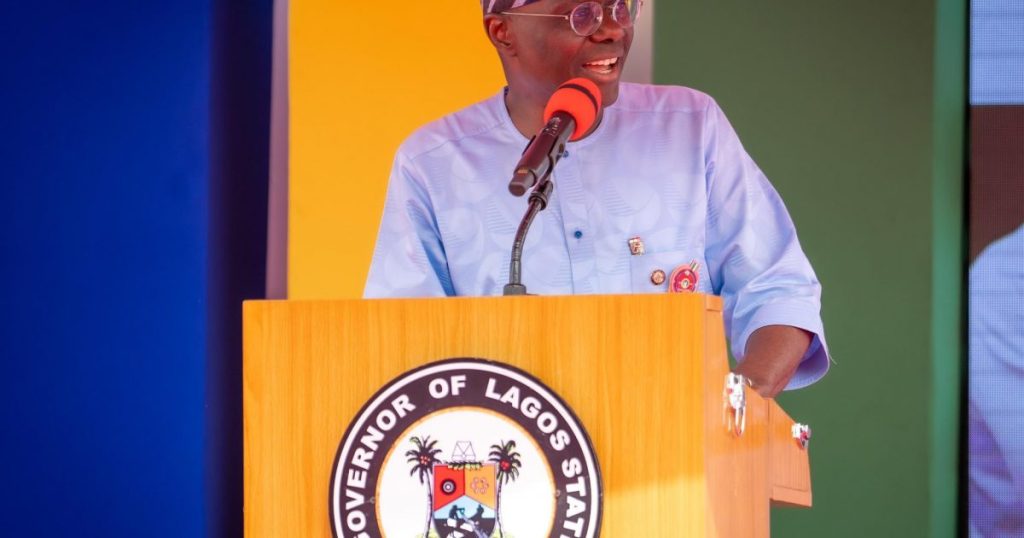Boosting Revenue Collection and Addressing Tax Evasion: A Call for Broader Inclusion and Strategic Reforms
Nigeria’s quest for enhanced revenue generation and sustainable economic growth calls for innovative strategies to address tax evasion and expand the tax base. Lagos State Governor, Babajide Sanwo-Olu, has emphasized the critical need to bring Micro, Small and Medium Enterprises (MSMEs) and high-net-worth individuals (HNWIs) into the tax net, highlighting their significant potential contributions to national revenue. Speaking at the 27th Annual Tax Conference of the Chartered Institute of Taxation of Nigeria (CITN), Governor Sanwo-Olu pointed to a potential loophole in pending tax reform bills, specifically the clause exempting employees earning below N800,000 annually from Personal Income Tax. He cautioned that this provision could inadvertently shield some individuals operating within the MSME and start-up sectors from paying their fair share of taxes, thereby perpetuating tax evasion.
The Governor urged proactive measures to counter this potential gap, advocating for intensified direct assessment initiatives targeted at HNWIs and strategic efforts to integrate MSMEs into the formal tax system. He emphasized the importance of sub-national governments taking ownership of tax reform implementation, rather than relying solely on the Federal Government. He called for a proactive approach, with state governments taking the lead in updating tax laws, leveraging technology, investing in data analytics, and developing human capital to maximize the benefits of the reforms. These proactive measures, according to the Governor, are essential for building a robust fiscal framework that supports economic growth and development.
Governor Sanwo-Olu showcased Lagos State as a model for effective tax administration, attributing its impressive N1 trillion Internally Generated Revenue (IGR) milestone in 2024 to its digitally driven reforms and citizen-centric approach to tax compliance. The state’s innovative "payer-centric" system, designed to prioritize convenience and ease of compliance, has significantly boosted voluntary tax payments. This system has incorporated various digital tools and services, allowing taxpayers to fulfill their obligations seamlessly from the comfort of their homes or offices. The result is a substantial increase in voluntary tax compliance, contributing significantly to the state’s revenue generation.
Key elements of Lagos State’s innovative approach include the deployment of artificial intelligence (AI) chatbots for enhanced citizen engagement, integration of advanced data analytics for efficient revenue management, and the creation of a unified platform – the Lagos Revenue Portal – to streamline tax processes and enhance transparency. These technology-driven initiatives have not only simplified tax compliance but also fostered a culture of trust and accountability between the government and taxpayers. The Governor noted these initiatives as examples of how strategic investments in technology and citizen engagement can transform tax administration and drive revenue growth.
Further illustrating Lagos State’s commitment to economic development, Governor Sanwo-Olu highlighted strategic initiatives such as the N10 billion partnership with the Bank of Industry to support MSMEs. This initiative underlines the state government’s recognition of MSMEs as a crucial engine for economic growth and job creation. Additionally, the passage of the Lagos State Electricity Law in December 2024 demonstrates the state’s forward-thinking approach to energy self-sufficiency, aiming to reduce reliance on the national grid and promote sustainable energy solutions. This law paves the way for a more stable and reliable power supply, crucial for businesses and overall economic development.
In conclusion, Governor Sanwo-Olu lauded President Bola Tinubu’s strategic leadership in advancing tax and economic reforms nationwide. He also commended the CITN’s consistent efforts in cultivating a resilient tax culture in Nigeria. The Governor reiterated the vital role of fiscal reforms in driving national development, emphasizing that these reforms are essential for harnessing the full potential of the country’s tax system, enhancing fiscal capacity, and contributing meaningfully to Nigeria’s ambitious goal of achieving a $1 trillion economy. He underscored the need for collaborative efforts between the federal and state governments, coupled with a focus on technology and citizen engagement, to achieve this ambitious economic target.


